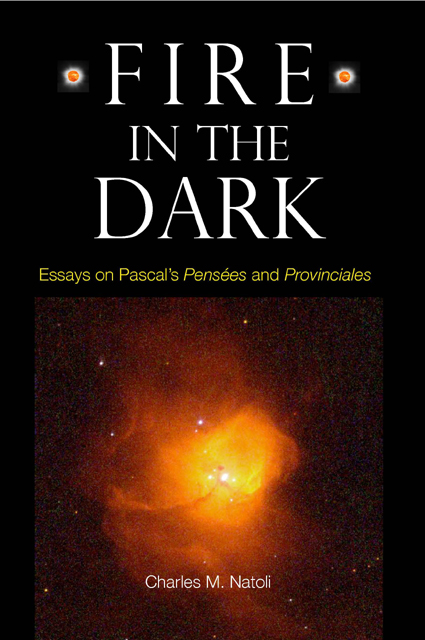3 - Preferring to Live in a Tree-Trunk: The Provinciales as Heauton Timoroumenos
Published online by Cambridge University Press: 17 March 2023
Summary
[C]’est encore une des contradictions qui défigurent nôtre espèce. Veu le penchant que nous avons à satisfaire la nature, nous devrions courir aprés ceux qui nous prêcheroient que tout est permis: cependant nous les détesterions. Puis qu’une morale relâchée nous paroit abominable, nous devrions nous attacher à la morale la plus rigide: cependant nous la fuyons. C’est donc que nous voulons un juste milieu, qui nous permette quelque chose, et qui ne nous permette pas tout? Mais si on y prend garde, on trouvera que ce milieu même ne nous accommode pas . . . .
[I]t is yet another one of the contradictions that disfigure our species. In view of the inclination we have to satisfy our nature, we ought to run after those who would preach that all is permitted; however, we would detest them. Then again, inasmuch as a lax morality appears abominable to us, we should embrace the strictest morals; however, we flee from them. Is it then that we wish a golden mean that permits us some things, but does not permit us everything? But if one looks closely, one will find that this very mean does not suit us . . . .
Pierre Bayle, Pensées diverses sur la comète, CLXXXIXIn the Provinciales IV–X, Pascal shows remarkable rhetorical address in maneuvering his “jésuite-marionette,” the sublimely fatuous “bon père,” into enthusiastic accounts of the Jesuits’ genius for accommodating Christian morality to the lifestyles of people of all sorts and conditions—in effect, into accounts of evident moral enormities declared permissible. These, quite unbeknownst to their expounder, will leave far the greater part of the Letters’ public agog, amused, aghast, and finally indignant. We are thus treated to the deliciously droll spectacle of the Jesuits, in reputation consummately clever, and by self-proclamation “tous conduits par la sagesse divine” (all guided by the divine wisdom, V 72), unwittingly indicting, convicting, and executing themselves in the court of public opinion.
The success of the Provinciales against the Jesuits as moral laxists has been as striking as Candide’s against Leibniz. Only in the “best of all possible worlds,” where “Tout est bien,” does “Jesuitical” imply no reproach.
- Type
- Chapter
- Information
- Fire in the DarkEssays on Pascal's <i>Pensées and Provinciales</i>, pp. 41 - 53Publisher: Boydell & BrewerPrint publication year: 2005



